Best Ways To Catch A Chicken
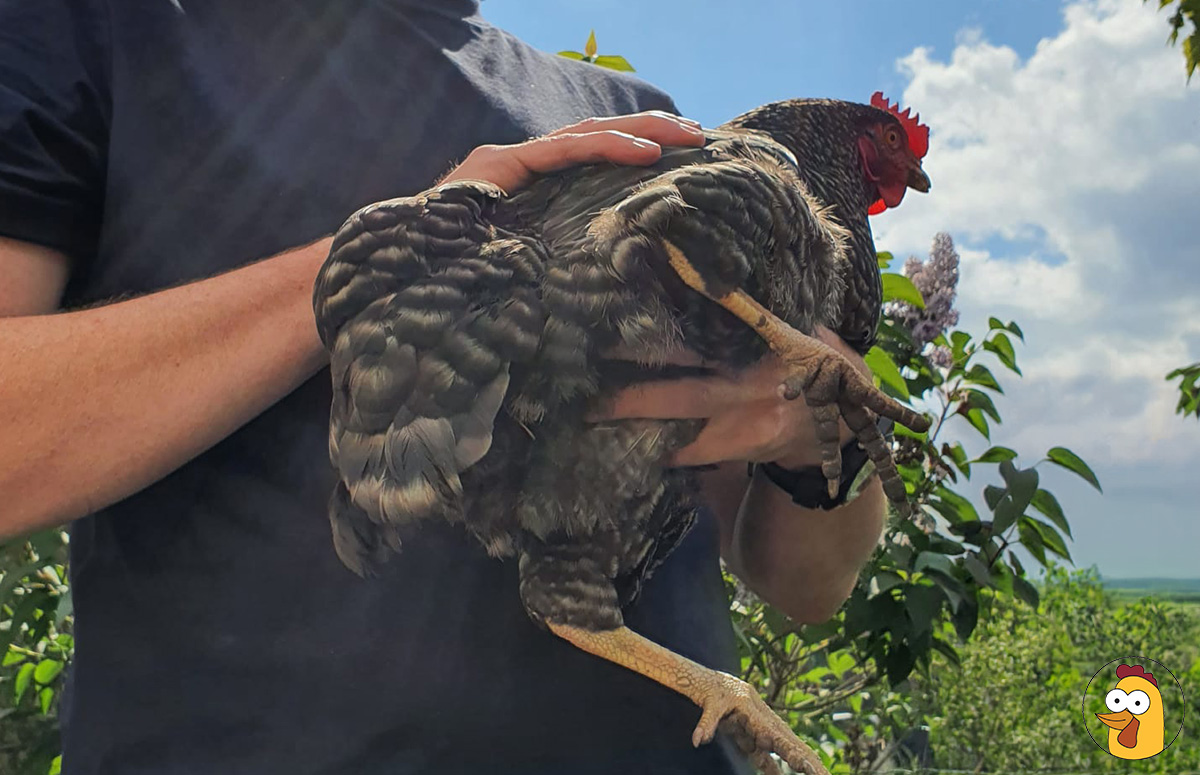
Chickens can be quite the escape artists. This can be annoying, especially when dealing with neighbors nearby or living in a neighborhood with many predators. However, it can be tricky to catch a chicken.
We’ll tell you how to catch a chicken safely and calmly so it won’t stress your beloved bird.
5 ways to safely catch a chicken
When dealing with an escaped chicken that you want to return to the coop as soon as possible, there is one ground rule: Don’t scare, hurt, or chase your chicken.
They’ll lose trust and remember this event the next time you visit them. There are many ways to catch a chicken without causing any stress to the animal.
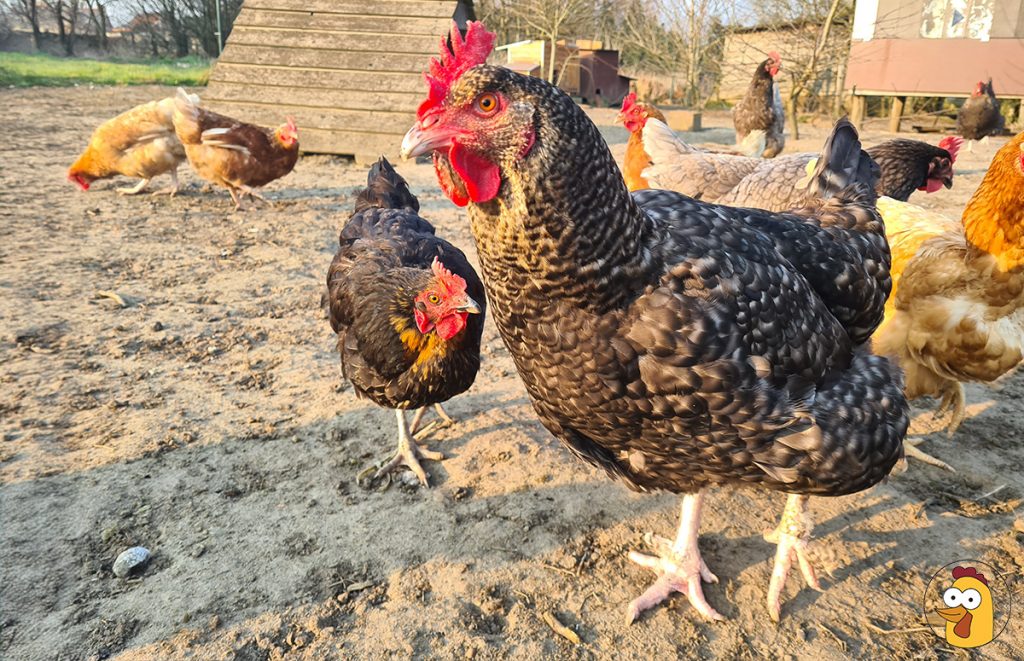
That being said, chickens always find their way back home. They’ll return by themselves to the coop at dusk. So if no emergency makes it urgent for them to come back, wait until they return themselves.
Let’s address five chicken-friendly ways to catch a chicken:
- Partner up and corner the chicken
- Use a box
- Lure the chicken with treats
- Wait until nighttime
- Wait until they’re inside the nesting box
Partner up and corner the chicken
Finding a person to help is the best and fastest way to catch a chicken without chasing it throughout the entire garden.
Carefully approach your chicken and make sure the chicken moves in the direction of the chicken coop.
This is a much easier task when done with two or three people.
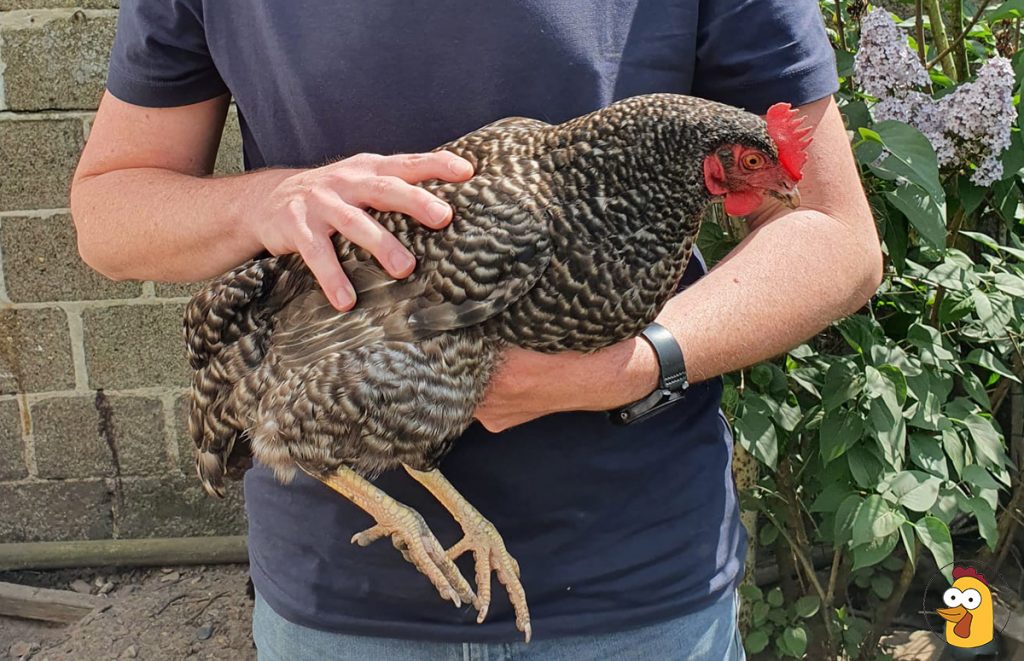
Don’t scare or chase your chicken, but gently make her walk into a corner of the chicken coop. At this moment, when she is surrounded, you need to act fast so she won’t panic.
The easiest and fastest way to pick a chicken up is by bending down behind her and gently scooping her up. Always scoop your chicken up from under her body.
Use your hands to cover the wings, as she might hurt herself by trying to flap out of your grip.
Use a Cardboard Box or blanket
You can use ‘trap’ equipment to make the task more manageable when you’re alone and have no one to help you catch the chicken.
This can be a cardboard box or a large blanket. We don’t encourage using fish netting because it can be unpleasant for your chicken once it gets tangled up in it.
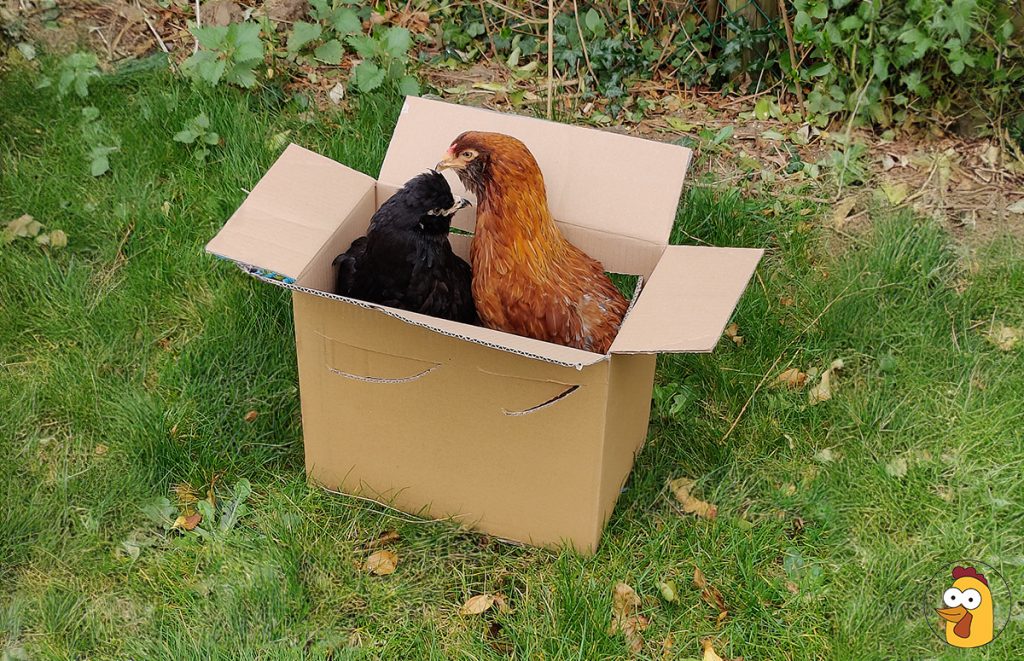
Try approaching your chicken from behind and throwing the box or blanket over the bird. Act quickly so she won’t escape or get too stressed.
Hold her firmly but gently once you’ve caught her so she won’t flap away.
Lure your chicken with snacks
If your chicken is used to the occasional mealworm treat, it won’t be a struggle to lure her back into the chicken run. Just shake the bag a couple of times and wait until magic happens!
Or leave a ‘Hansel and Gretel’ trail of their favorite treats so they follow you back to where they belong. It’s more hassle but relatively easy if they don’t wander off too far.
Wait until the nighttime
The easiest way to catch a chicken is to wait until dusk. She’ll return to the coop to roost, and it’ll be super easy to pick her up from the roost and hold her.
Chickens always go to bed around the same time, depending on sunset, and will find their way home.
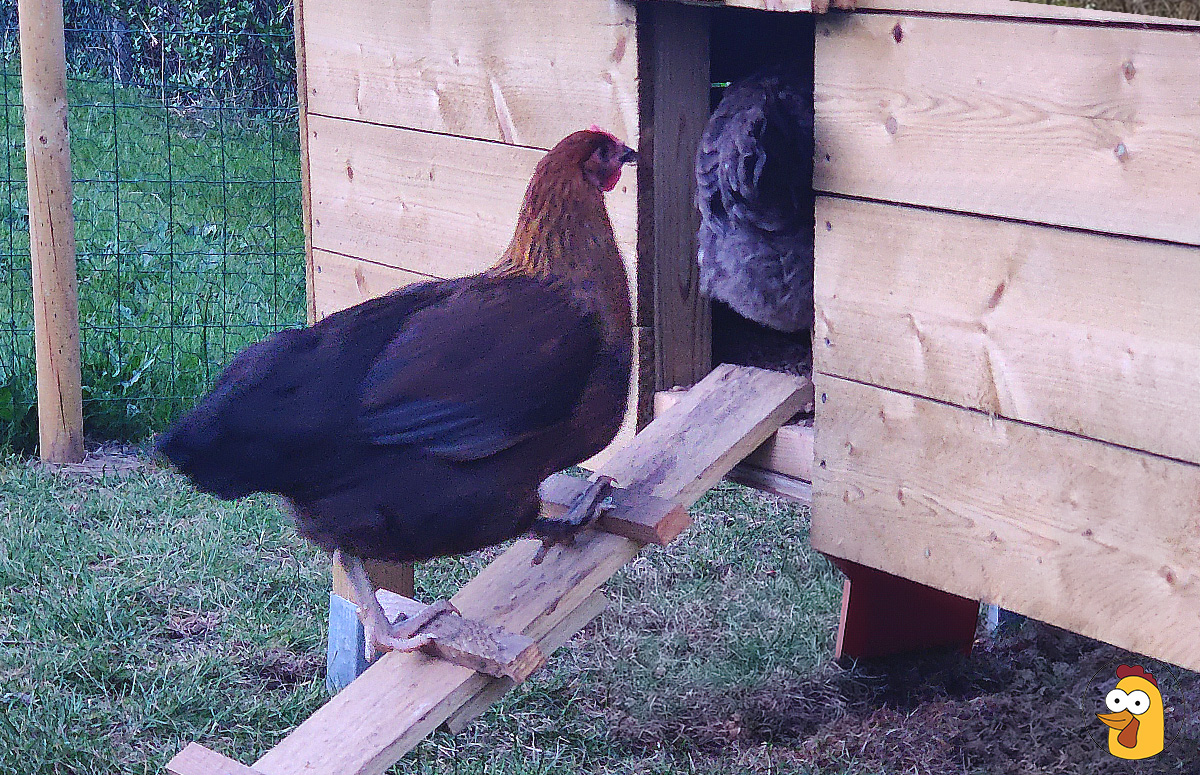
If there is no urgency to get the chicken caught, for example, no predators around or no emergency health situation, waiting until dusk is a way to go that won’t stress out your chicken and is, therefore, ideal for both parties.
You don’t have to lure or decoy your bird, and the chicken has no idea what’s happening and remains calm.
Wait until your chicken is inside the nesting box
Another stress-free idea is to wait until your chicken returns to the coop to lay an egg.
Once she’s settled in, picking her up and holding her for examination will be easy. The same goes for waiting until your hen returns to the nesting box as it did for waiting until dusk.
If there is no emergency, waiting until your chicken returns on its own is the best option to reduce stress and avoid having to chase your chicken.
How to catch a rooster?
Dealing with a rooster, especially an aggressive rooster, differs from dealing with laying hens. Roosters can attack and won’t always follow your directions.
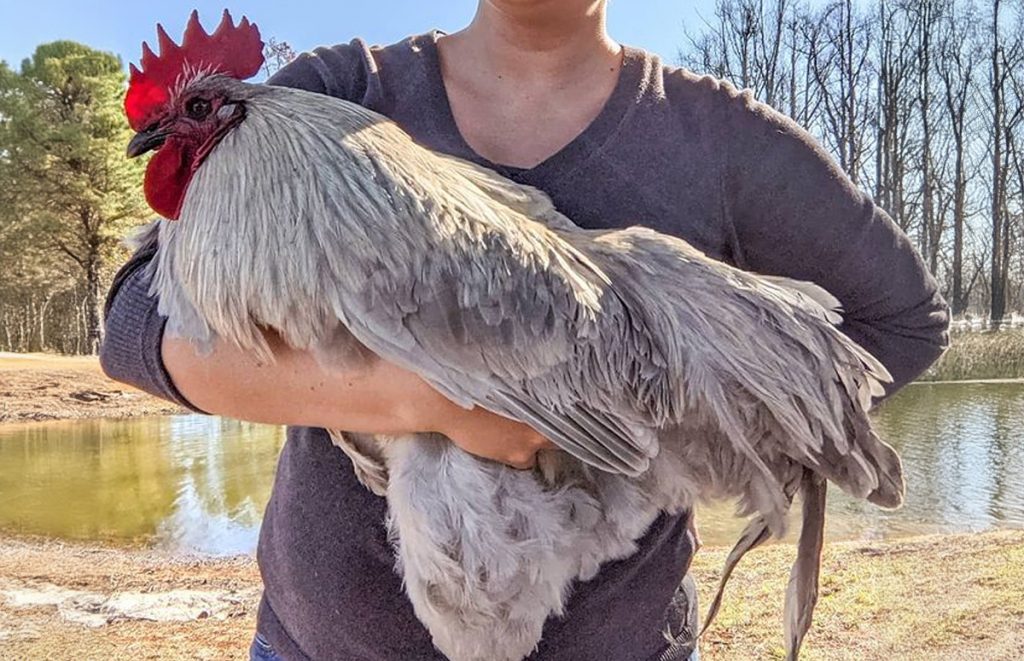
What can you do to quickly and successfully catch a rooster:
- Use a trap. That means a cardboard box or a blanket. You can even use an animal trap that’s used for stray cats. If you don’t own a trap, most vets have animal traps for stray cats that you can use for free or for a small fee.
- Wait until nighttime. Chickens can’t see very well in the dark and are, therefore, pretty easy to handle. Wait until it’s dark and pick up the rooster from the roosting perch.
- Lure him with snacks. Even roosters love snacks! Try to lure him by shaking the bag of treats.
As roosters can be aggressive, be extra careful when trying to catch and hold a rooster. Dress accordingly and cover your hands and head with gloves and a cap.
Why catch a chicken?
There are numerous factors why you don’t want your chickens to wander around or why you need to catch them. We’ll address the most common reasons.
- Check-up
- Bathing
- Suburban neighborhood
- Predators around
Check-up
Numerous diseases endanger your flock, such as Marek’s disease, cholera, fowlpox, or coccidiosis. One is more common than the other, but all diseases can wipe out an entire flock.
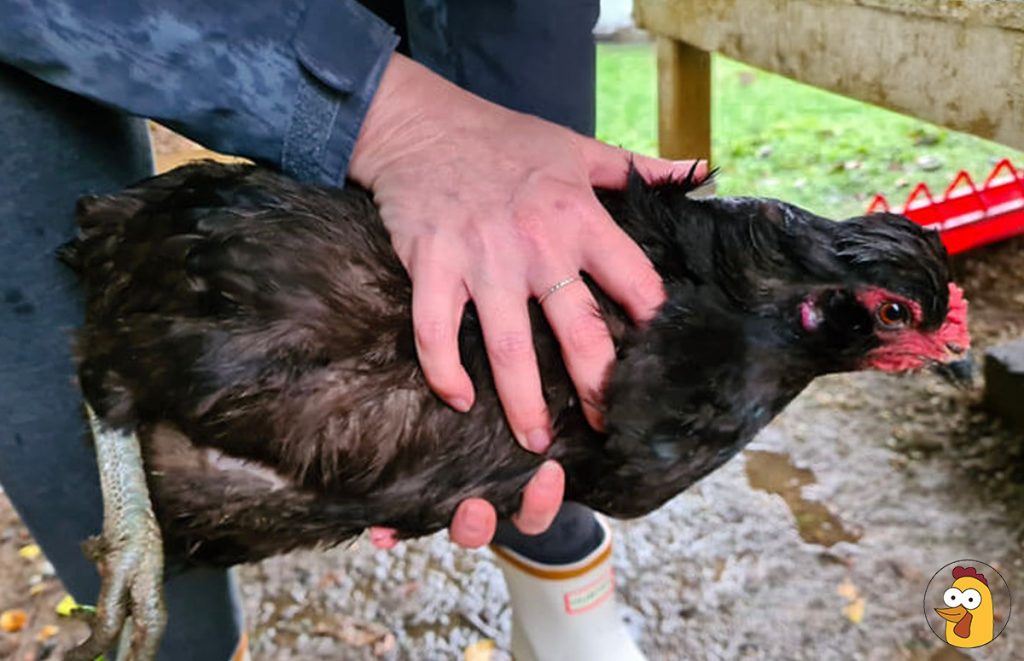
Chickens are constantly scratching their feet in the dirt, looking for food. It’s not uncommon for their feet to get wounded and, in worse cases, develop bumblefoot.
Parasite infestations like red mites can endanger your flock, make them sick and weak, and are very hard to eradicate.
Regularly checking your chickens for illnesses and infections can help them get the help they need before things worsen.
Bathing
Chickens do not like water baths; in most cases, water baths for chickens are not necessary. Chickens clean themselves by preening and dust bathing.
But in case of a dirty vent area, a lice infestation, scaly leg mites, or when fly strike appears, soaking your bird in lukewarm water is the first step in the treatment process.
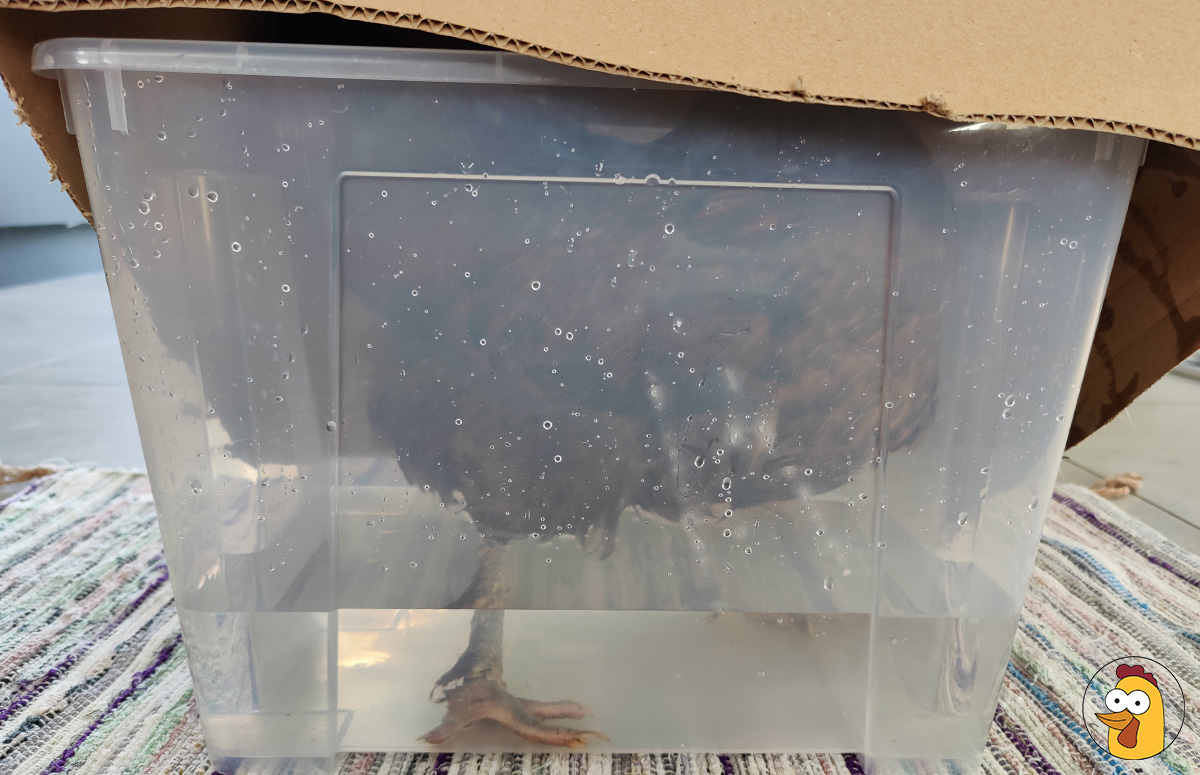
Suburban Neighborhood
In some cases, free-ranging your chickens isn’t the best idea.
When living in a densely populated area with neighbors nearby, letting your chickens roam freely is not recommended, as they won’t stay in your backyard.
So, if your chickens escape the run and you don’t have the best bond with the neighbors, catching them and bringing them back inside the run is essential.
Chickens can be messy, ruining your neighbor’s flower beds and nicely planted garden and eating all their geraniums. But they’ll also eat any fruits or vegetables available in any garden.
And last but not least. Chickens poop. A lot. So, if you don’t want your neighbor’s garden filled with chicken droppings, think about keeping them inside the run. Chicken poop can even be dangerous when eaten by the neighbor’s (or your own) dog.
Predators
When living in an area with many predators, you’ll know keeping your chickens inside a secured area day and night is essential.

But with chickens being quite the escape artists, that is sometimes easier said than done.
As it is too dangerous to keep them outside until dusk, and they’ll return to the coop alone, you’ll need to catch your chicken and bring it back to safety as soon as possible.
There are many predators around that are after your chickens, even during the daytime.
Summary
When trying to catch a chicken, it’s vital never to hurt, chase or scare your chicken. There’s no use in chasing them around in the garden, hoping they’ll eventually go inside the coop.
When there is no urgency to get them back, leave them. Eventually, all chickens return to the coop at dusk or come back to lay eggs.
If you need to catch your chicken immediately due to an emergency, try to find somebody to help you escort them back to the run. Use a cardboard box or blanket to throw over the chicken, especially on your own. Or try and lure your chicken with some tasty snacks.






















